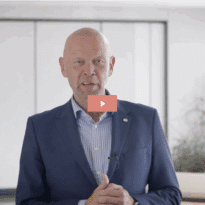Only six in 10 (60%) professional investors feel financially prepared to support clients in living longer in retirement, new research from Fidelity International has revealed.
The Professional Investor DNA Survey, developed in partnership with Crisil Coalition Greenwich, surveyed over 120 institutional investors and intermediary distributors across Europe and Asia.
Katie Roberts, global head of client solutions at Fidelity International, said: “The global retirement challenge and the pension funding gap are not new, yet these issues continue to accelerate significantly, as populations are expected to live longer, and to some extent, be healthier and more active in retirement.
“While the retirement challenge requires local solutions, what is clear is that state support overall is likely to be less going forward, with individuals becoming increasingly responsible for financing their retirement. To generate enough capital to support this extended life span, professional investors have a key role to play in providing their clients with relevant long-term solutions, whether it be through workplace investing or customised, private solutions to prepare for retirement and ensure their clients continue to be invested in retirement.”
Fidelity said an important element for retirement preparedness includes identifying the appropriate financial investments and solutions to support clients in creating sufficient wealth in retirement.
However, only 57% of professional investors agree there are enough products and solutions in the market addressing the needs of an increasing life expectancy.
Roberts said the findings highlight an opportunity to “further develop innovative financial solutions to alleviate any provision gaps.”
In terms of asset allocation, the study showed that investors are learning towards equities and private assets as a means of increasing the risk-return profile of their portfolios in anticipation of longer life expectancy for their clients.
Over half (55%) of investors confirmed they expected to increase their exposure to equity, closely followed by private assets (52%) and fixed income (24%). Meanwhile, the survey pointed to potential decrease in exposure to multi-asset funds (28%), cash (26%) or fixed income (21%).
Roberts said: “The findings suggest that when planning for retirement, investors are focused on increasing their allocation to more risk-on asset classes to accumulate wealth over time. What this may not show is how the portfolio allocation changes when clients transition from a wealth accumulation phase to a decumulation phase in retirement. Indeed, in retirement, one might consider products that provide more accessible and flexible liquidity.”
Roberts added that investors must consider the difference between investing for retirement and investing in retirement which involves ensuring sufficient funding throughout the entire extended life cycle.
“From an investment perspective and according to the survey, a lot of progress has been accomplished in terms of retirement readiness but more still needs to be done, particularly in terms of awareness on longevity, transition between accumulation and decumulation phases and the availability and diversity of solutions.”
Main image: billy-huynh-W8KTS-mhFUE-unsplash































